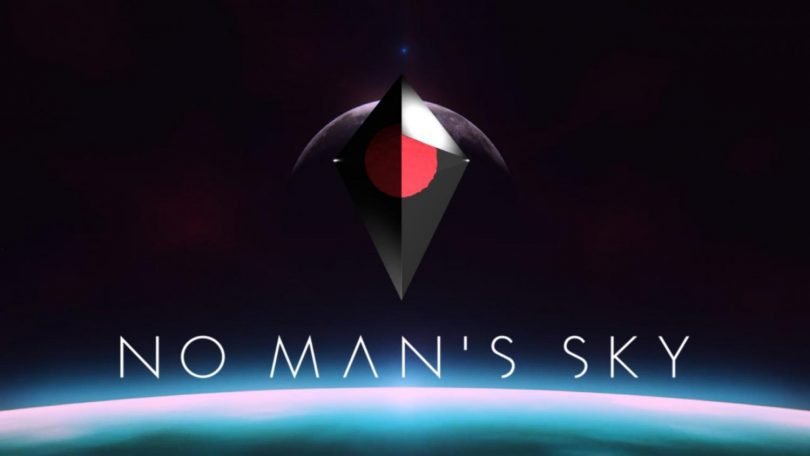A couple of weeks ago, I wrote about why I thought No Man’s Sky, the new procedurally generated space exploration game from Joe Danger developer Hello Games, was going to be in trouble as soon as it came out. Now, a few weeks into the game’s life, I feel safe to mark that as an accurate prediction and that saddens me. For such a small team, Hello Games received disproportionate attention due to the ambition and scale of what they were trying to achieve. And if you’ve been anywhere near a gamer on social media you’ve probably seen the anger and frustration directed at Sean Murray and his team. I haven’t seen consumers this angry since Assassin’s Creed Unity came out and that was hilariously broken.
It’s easy to look at the attitudes towards No Man’s Sky and point blame at the developer, but the media and the fans themselves are also in the wrong, and I do think people need to cut Hello Games a little slack. Having said this, Sean Murray and his team are not innocent in this backlash, so let’s take a look at what they did wrong first.
Why is every game publication producing pieces defending No Man's Sky? I'm not saying there's a conspiracy, but demonizing consumers is bad.
— Ian Miles Cheong (@stillgray) September 1, 2016
For the first 18 months or so after they announced the game in 2013, I actually thought Hello Games got everything right. When asked about a release date, Sean Murray at one point said he wasn’t going to even guess because he didn’t want to upset fans. This was a smart move around the time when Destiny had needed a year and three expansions to become worth playing, and the Division was perpetually being delayed. Sadly, Hello Games announced a release date for June of this year and had to push it back to August. When you’ve got a publisher like Sony waiting to sell the game, it would have been hard for the devs not to be pressured into announcing a date, but they should have held out until they knew they were ready. These delays were probably the first big sign the game would disappoint when absurdly passionate fans were sending Sean Murray death threats over the release. It really showed a low side to internet behaviour, but that’s a discussion for another day.
The developers got people interested early in the development cycle, but kept a pretty solid filter on details and imagery and tried to stay out of the spotlight at events like E3. Sadly, the spotlight found them with Sean Murray making appearances on platforms as widely viewed as the Stephen Colbert show. Murray didn’t set himself up for success in these shows, advocating the procedurally generated aspect of the game and saying it was improbable, but possible, for players to meet each other in the game and interact. This was contested on launch day, with two Twitch streamers spotting each other in the game’s universe and being unable to interact.
Most people have probably seen some variant of a side by side comparison between a trailer for the game and a post-release clip. Some of them are pretty shocking, and it’s this contrast that drew a lot of the initial anger. However, it’s important to remember that this is not entirely Hello’s fault; a procedurally generated game of this scale really limits the depth and detail they can put in, and while some poorly rendered landscapes and awful looking creatures can be encountered, the beautiful scenery and impressive wildlife in the trailers are there too. Procedural generation was always going to be hit and miss, and people really need to remember that trailers are designed to sell the game and Hello Games would be pretty stupid to use anything other than the best footage they can get.
So Hello Games have definitely made mistakes, but alone they really don’t warrant the level of anger they are receiving. So the next people that need to be looked at are the media. Gaming journalism has always been important in helping consumers choose games to buy and producers sell their games, and the media has a symbiotic relationship with both ends of the supply chain. However, there are so many different gaming websites and magazines all competing for the readership that as soon as any game gets a positive reception there’s a huge scramble for gameplay footage, details, and interviews. It all results in a snowball effect that creates more and more expectation around the game. It ends up pretty much guaranteeing gamers will be disappointed with the end product. Recently, Ubisoft’s The Division, DICE’s Star Wars Battlefront and Remedy’s Quantum Break all hugely disappointed fans, while some of the best games of last year, CD Projekt Red’s The Witcher III, Psyonix’s Rocket League, and Supermassive’s Until Dawn all did spectacularly well after very little attention pre-release.
It’s not a problem that’s ever going to go away, because as the gaming industry grows more and more people rely on competing media outlets for income and information, it becomes exponentially more difficult to keep the information flowing around the world limited. I believe the people that need to change the most to avoid disasters like the launch of No Man’s Sky are the gamers and fans that are the source of the anger.
I mentioned expectant fans threatening Sean Murray, which is clearly too far, and I’m not going to legitimise it by discussing it any further. The main issue is that gamers never curb their expectations, and what I mean by that is the constant references to trailers when discussing the game. Trailers are designed to shift copies it’s all they’re for. What people need to start doing is separating their preconceptions from their experience of the game. Yes decide what game to buy based on trailers and details, but stop pre-ordering games. Wait until the game is out, read a review or two, and factor that in. That way if the trailers are misleading and the game isn’t up to scratch, developers and publishers don’t make their money until they put things right.
Once you’re hearing good things about the game and pick it up, people then go into the first play session with the expectation of what the game should be. Once you’ve bought the game you need to forget everything that made you decide to buy it and base your opinions on the game’s merit in a vacuum. Then everything comes down to whether you enjoy the game or not. If you do, great, the system is working. If not, go try something else, it’s not the game for you. But by holding developers accountable and holding the media to a higher standard, the only reason for a game to be disappointing is personal preference. And that’s really how it should be.
The way people as a whole generally behave rarely changes, so I fully expect us to be here again after Battlefield 1, Titanfall 2 or Mass Effect Andromeda release, which is a shame. But if everyone could learn something from No Man’s Sky, gaming could be better for everyone.









